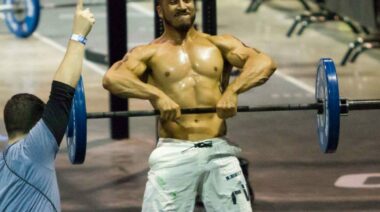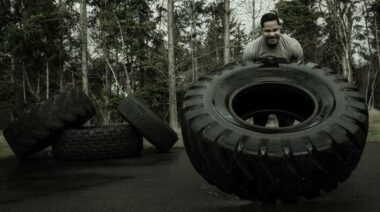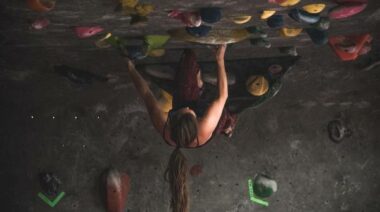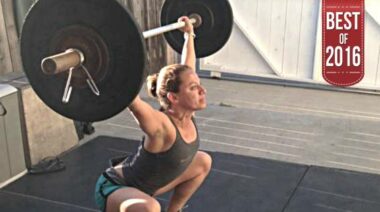In learning theory there’s a phenomenon known as the “learning paradox,” which suggests that it is actually impossible to learn anything. This is because if you don’t know that you need to learn something, you won’t attempt to learn it, and if you know you need to learn something, you in a way already know it.
It’s a fun conundrum to debate, and smarter people than I have done so far more eloquently, on both sides of the premise. The learning paradox got me thinking about a paradox that seems to exist in my own life, one where effective pursuit of my chosen fitness goals requires that I feel both fulfilled and dissatisfied. Lately, with my grappling training, I’ve been just playing, going to class and testing out movements; if they work, I’m excited and continue to experiment, and if they don’t, I say, “Oh well” and try to modify something the next time. Since I haven’t been placing any undue pressure on myself, I’ve been having a ball, and I daresay I’ve also been improving somewhat.
On the other hand, I know that this kind of athletic bricolage, which is freeing, fulfilling, and full of warm fuzzies, must be accompanied by more structured, accountability-based training. This is the kind of activity that sometimes casts a pall and leaves me feeling lacking, though it is the kind required to succeed in competition and move nearer to optimal performance (which I know a tiny bit from my own experiences and much more from observation of grapplers who are far better than I at both grappling and competing).
I grapple because I love the way it makes me feel and the person it has enabled me to become. And yet, I have to feel at least a little bit dissatisfied – and frequently very dissatisfied – with my current skill level in order to feel motivated to do what it takes to improve. But if I go too far to the dissatisfaction place and lose all the good feeling, then I also lose motivation because it becomes too painful to contemplate my shortcomings. It seems for me there needs to be a certain amount of contentment but not complacency and a certain amount of dissatisfaction but not self-loathing.
 And perhaps that proportion differs from person to person. I think a lot about people who are the best in their field at what they do and what they have had to sacrifice to get there, how their behaviors and mindsets differ from mine. I wonder if the proportion of contentment to dissatisfaction they feel is different, if they spend less time giving themselves pats on the back and instead use the things they have not yet achieved to fuel their excellence. I wonder if they are happy with what they have accomplished and how important it is for them to feel happy; I also wonder if my desire to feel happy hinders my ability to optimize my achievement. What does that desire say about my own resolve and my own dedication?
And perhaps that proportion differs from person to person. I think a lot about people who are the best in their field at what they do and what they have had to sacrifice to get there, how their behaviors and mindsets differ from mine. I wonder if the proportion of contentment to dissatisfaction they feel is different, if they spend less time giving themselves pats on the back and instead use the things they have not yet achieved to fuel their excellence. I wonder if they are happy with what they have accomplished and how important it is for them to feel happy; I also wonder if my desire to feel happy hinders my ability to optimize my achievement. What does that desire say about my own resolve and my own dedication?
It’s my athletic paradox. I pursue my athletic goals because, simply, doing so makes me feel good. But inherent in the process is the requirement that I sometimes feel bad, because it’s the bad feeling that at least partially moves me forward. The pursuit is worthwhile, and on the journey I learn valuable things about myself. But the journey is never over.
Do you experience your own athletic paradox? How do you reconcile the motivating power of dissatisfaction with the reasons you embarked on your fitness journey in the first place – to feel good?
Photos courtesy of Shutterstock.






